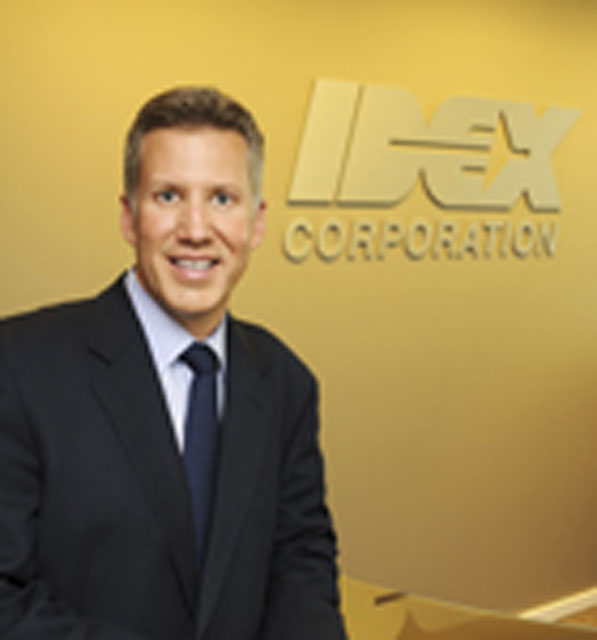
People tell me I am a great listener. Listening helps you understand where people are coming from. In my two previous positions, I traveled extensively internationally, and I enjoyed learning how people live and work in different parts of the world. I’ve always found it an interesting challenge to understand how to meet people’s different expectations.
People want to come to work for us and continue to work here because we’re a very associate-focused organization. We have a set of cultural values and behaviors that illustrate our commitment to one another, as well as our customers, and guide the way we do business. First: no jerks; relationships are really important to us. Everything is based on respect and integrity. Second: we form relationships through the authenticity of the service we provide. Third: no shortcuts; you have to approach everything with optimism and mastery, even if it’s hard.
“Profits provide possibilities” is the final value at Panera. There has been tremendous support by our co-CEOs for the HR function, including increased investment that benefits our associates. For example, we have taken a large part of our first floor office space in our St. Louis support center and built an auditorium where we can deliver training and hold meetings. We introduced a summer hours program for those who work in our support centers, which has been incredibly well-received. We also introduced a bonus plan this past year in which all of our support center associates can participate. As the company wins and does well, so will they.
We are very in tune with our associates, and make sure they have an opportunity to contribute and voice their opinions. A lot of organizations use engagement surveys to find out how committed their employees are to the company. Panera has some of the highest engagement scores in the restaurant and hospitality industry. We treat those results very seriously. We debrief the scores with associates, and where they have issues or concerns, we action-plan around it.
Previously at Panera, a lot of the efforts supporting diversity had been grassroots and were not led by any specific initiatives. This year, when the leadership team got together and decided what the most important objectives were, one of the top 10 for Panera in 2012 was supporting our diversity efforts. In February, we held our first Women Leader’s Breakfast at our “Family Reunion” [an annual company meeting]. We had more than 200 associates attend the morning event, where we spoke about our commitment to diversity, our plans to launch a network group for our women employees, including asking them what they’d want from such a group. Then we had a terrific panel discussion. The enthusiasm and support was overwhelming, as indicated by the more than 400 questions submitted in advance for the panelists.
It is a focus area for our company to increase the number of women and minorities in more senior levels of the organization. I feel like being a woman is an advantage at Panera, because I’m able to bring a perspective that maybe hasn’t been looked at before. I’m very fortunate, given where I am in my career, that a lot of barriers were broken by women who came before me. I give those women a lot of credit. While I would say I’ve met with some barriers, it was much easier for me coming up as a woman than someone 10–20 years earlier.
 I have several expectations for myself and for my team. The first is to live the values of the organization, and in HR, confidentiality and trust are nonnegotiable. The second is to under-promise and over-deliver. You have to get the small things right or the big things won’t matter. Lastly,you have to know the business first to deliver high-quality and value-added solutions. When I leave an organization for whatever reason, I ask myself, “Am I leaving it better than when I came to it?” When I left Godiva, I left with my head high and able to say that I made a difference. I hope to say the same thing when I leave Panera at some point in the distant future. That will be my yardstick for accomplishment.
I have several expectations for myself and for my team. The first is to live the values of the organization, and in HR, confidentiality and trust are nonnegotiable. The second is to under-promise and over-deliver. You have to get the small things right or the big things won’t matter. Lastly,you have to know the business first to deliver high-quality and value-added solutions. When I leave an organization for whatever reason, I ask myself, “Am I leaving it better than when I came to it?” When I left Godiva, I left with my head high and able to say that I made a difference. I hope to say the same thing when I leave Panera at some point in the distant future. That will be my yardstick for accomplishment.
I don’t have all the answers, but I’m smart enough to hire strong people in the organization to help me. We’ll try new things. We’ll test them. If they don’t work, we can change them. I recently worked with our organizational effectiveness team to reevaluate our approach to succession planning. There were four of us in the meetingwhere we completely rethought our existing processes, developing ways to simplify and streamline the outcomes. I was so proud of that team. I took the recommendations to our co-CEO, and he was incredibly supportive. We’ve been rolling out the new plan with great reception from the leadership team. I couldn’t have done that alone—it was the team thinking critically and solving problems. I think that’s one of the most important things we do as an organization.
I had somebody in HR approach me saying, “I appreciate the time we spend together, but we don’t get to hear what happens in the rest of the business. Could we have business updates?” I said, “Absolutely.” I hadn’t even thought about it. Now we have business-update meetings every other month, where information is shared with the team on everything going on within the business, from marketing programs to new-product introductions to supply chain initiatives.
In five years, I see myself at Panera, and I see the HR function being stronger. We’ll be in a position to provide exceptional support to an organization that’s growing very fast. I want to introduce more
programs for associates and continue to drive employee engagement. I look at this as a 10-year plan to execute what I have in mind for us as an organization.

